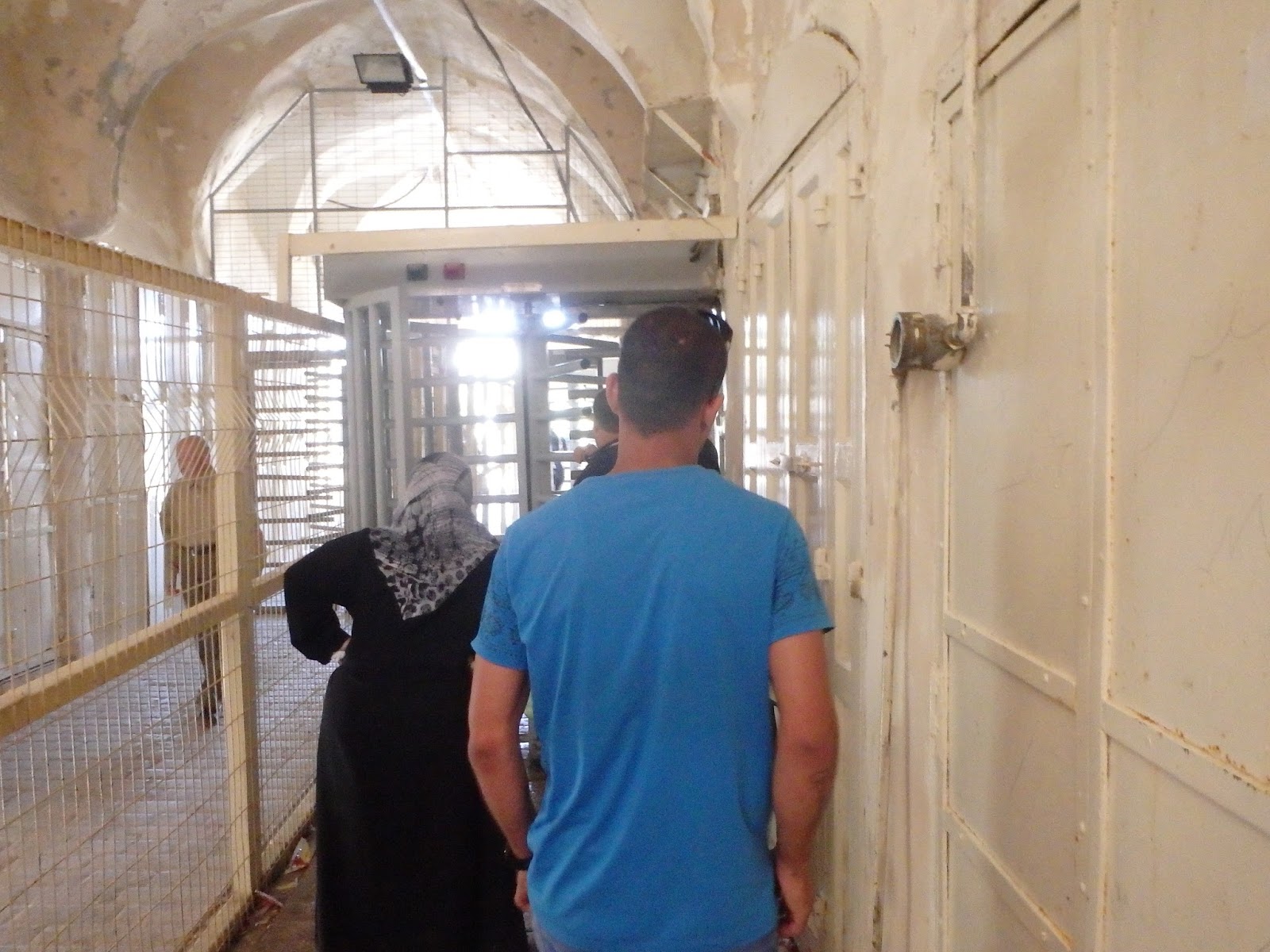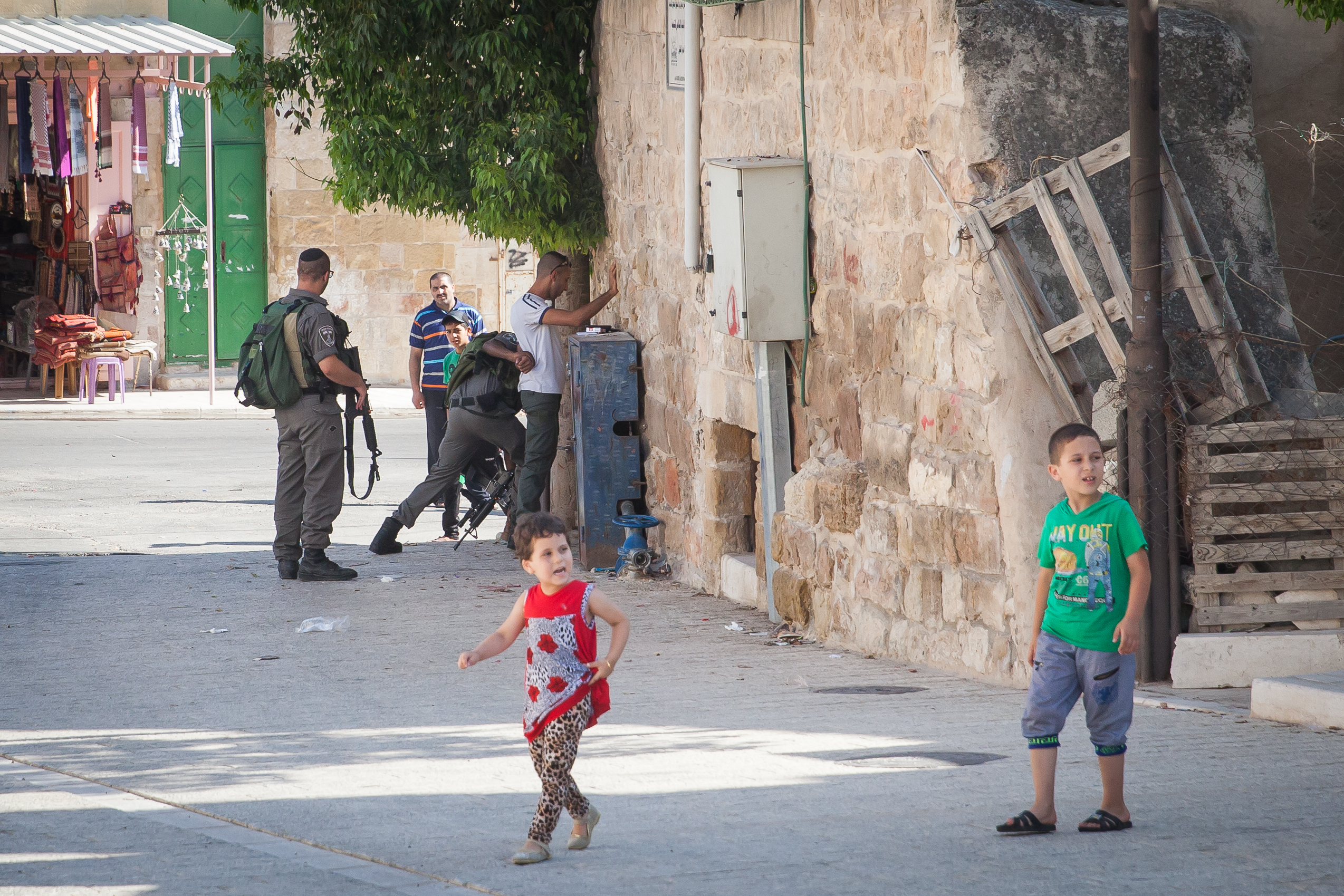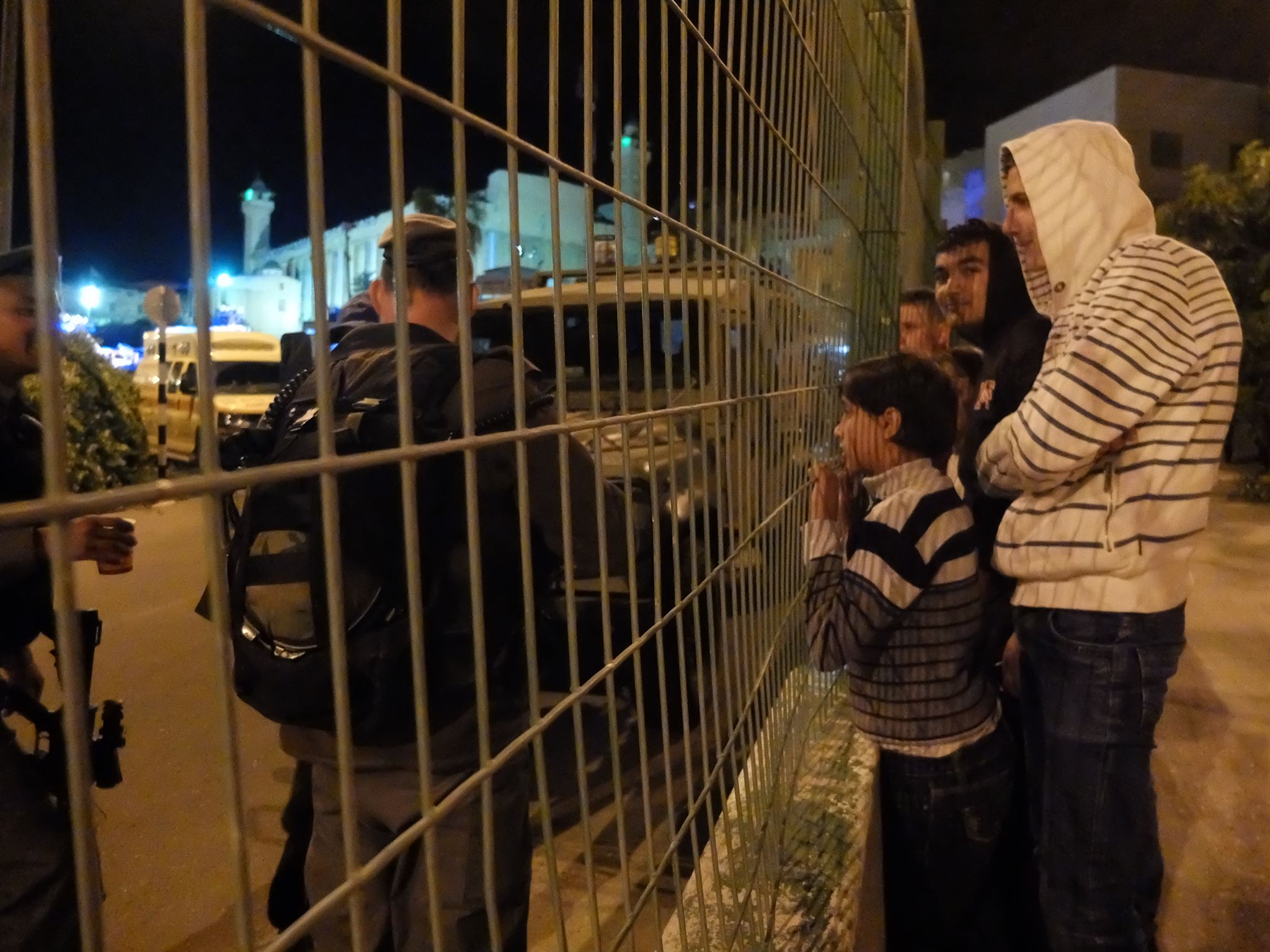Category: Journals
-
Denied permission to go to the mosque to pray
13th July 2016 | International Solidarity Movement, al-Khalil team | al-Khalil, occupied Palestine During one of our walks today, we came across a sight that very unfortunately is all too common in this city. A group of men and women were queuing up to go to the Ibrahimi Mosque – believed by both Jews and…
-
The impossibility to know – navigating the (psychological) siege of Hebron
8th July 2016 | International Solidarity Movement, al-Khalil team | Hebron, occupied Palestine Israeli forces during the last week of the Islamic holy month of Ramadan have increased and stepped up restrictions for Palestinians in occupied al-Khalil (Hebron). Thus they are severely limiting Palestinians possibilities to exercise their religion during this most important month in…
-
Celebrating Israeli Independence day from the other side of apartheid fence
13th May 2016 | International Solidarity Movement, Verena, Al Khalil team | Hebron, occupied Palestine Leaving the meeting I was searching for a safe way to go through the old City of Hebron alone, where there was a celebration of ”Israeli Independence day” going on. I wanted to reach my ISM team members who were already patrolling there.…



